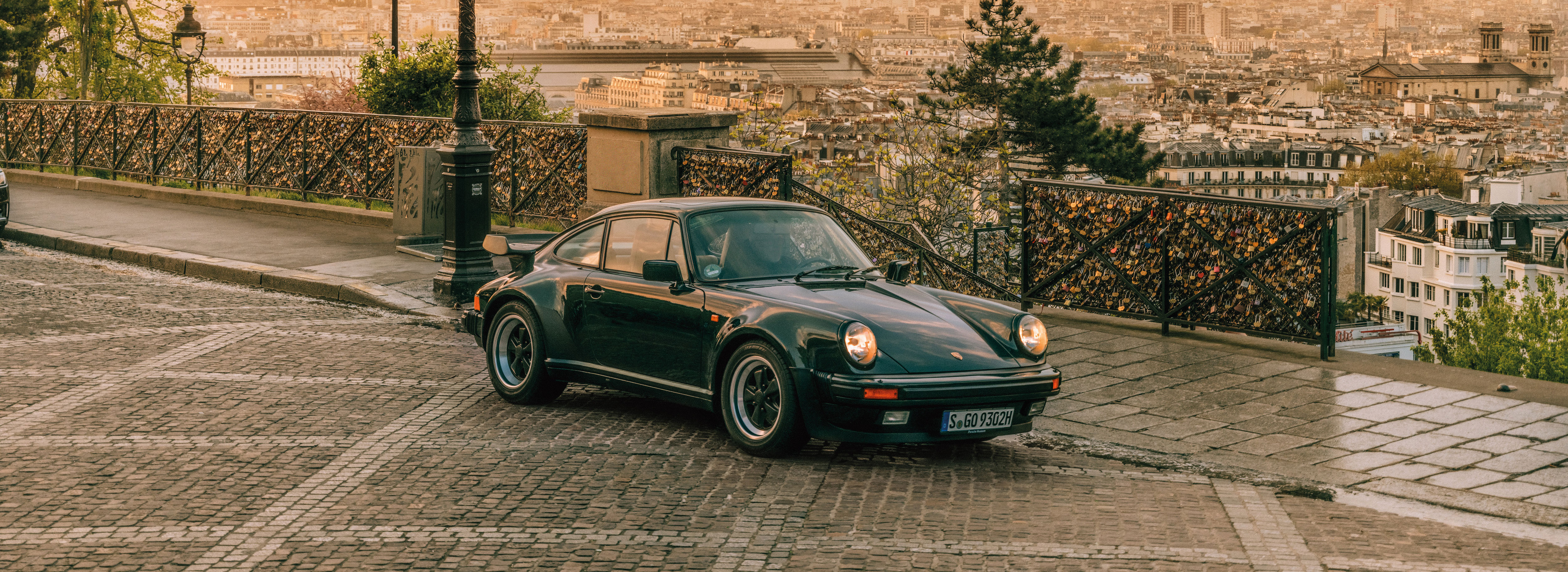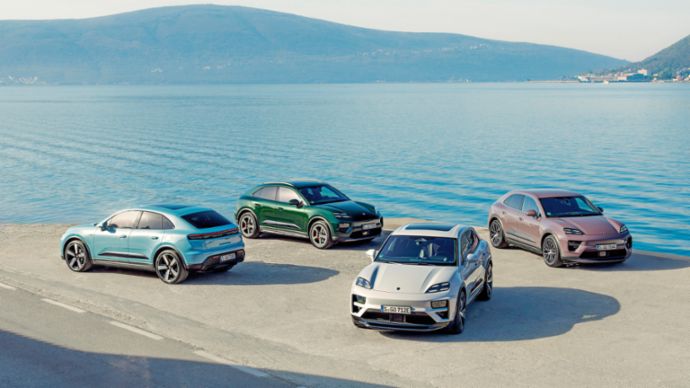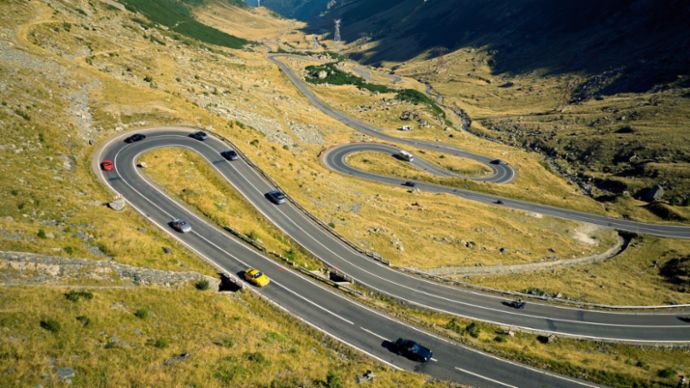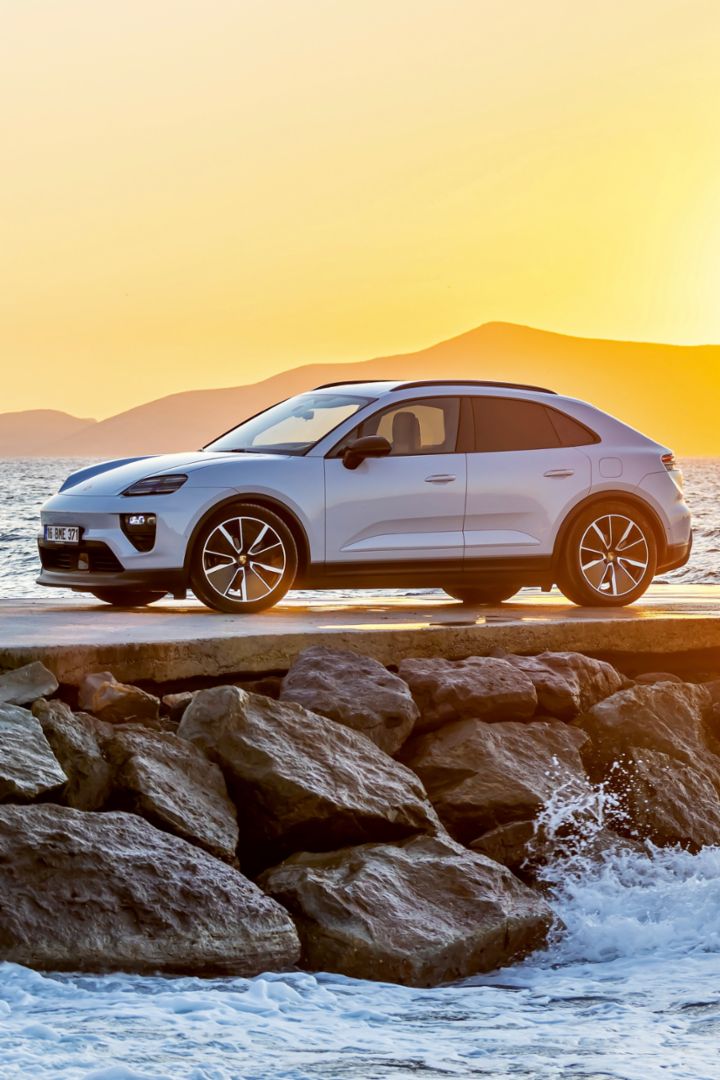Love and Fresh Air
The 1974 world premiere of the 911 Turbo at the Paris Motor Show caused a sensation. We return to a place that saw the dawning of a new era half a century ago to tell a story of boldness, energy, and timeless elegance.
The Champs-Élysées and the Élysée Palace are a stone’s throw away as we stroll where Paris is at its most stylish – très chic, one might say. An approving growl emanates from the rear. Level with the ignition on the left, a shop window suddenly appears framed in the color of our car. Eight gold letters tell us it’s the Givenchy fashion house.
Hubert de Givenchy coinvented the classic little black dress. This was just over a decade before the first Turbo, but the famous dress has aged well. A classic. Confident. Timeless. Thrilling. Not too extravagant but not overly simple either. While the spirit of the times can change in an instant, it will forever be a great choice for virtually any occasion.

But wait a minute – are we still talking about fashion here or are we now talking about the car? Either way, we’re talking about enduring appeal. And iconic style.

Atmospheric charge:
The Pont de Bir-Hakeim is considered one of the most beautiful bridges across the Seine. Up top, it is the domain of le métro. Down below today – the Porsche 911 Turbo (930).Paris is a place of energy for the Turbo. Half a century ago, it gained social acceptance at Porte de Versailles. The world had just come through the oil crisis. Driving on Sundays had been banned in Germany as a result. And this was still hanging in the air at the exhibition halls. To be unveiling a new sports car that was as fast and as powerful as this now of all times was a bold move. Back in Germany, too, where they were celebrating winning the World Cup, some doubts were being voiced. But the Porsche press release back then spoke about the Turbo in unashamedly proud terms: “In spite of its outstanding performance, the new Porsche dispenses with all the negative attributes of conventional peak performance. Its design is neither hard nor spartan, and its running is not sensitive.” That October 50 years ago, motorsport technology culminated in the luxury segment. In a class of its own, the 911 Turbo laid claim to special status from the outset. Some call it an authority. But what has certainly always been there is huge respect.

The Turbo is brimming with consistency and energy. Immense dynamism that has a great deal to do with the entrepreneurial boldness behind it. Because it’s not enough to simply equip an exceptional product with performance. It takes attitude, too. With its strong character, the Turbo embodies the Porsche principle. It is sometimes synonymous with the brand.
Turbo has become a life philosophy.

In the Olympic city of 1924 and 2024, Baron Pierre de Coubertin comes to mind. In establishing the modern Olympic Games, the Parisian championed international competition under a motto which applies to everyone equally: faster, higher, stronger. Many are brimming with energy, but at the Olympics it’s all about bringing this to a head at just the right moment. What an appealing idea to have the Turbo make an appearance in the Stade de France. As the ace, the trump card that it became in the game of car quartet.
Turbo has become a life philosophy: giving it all; demonstrating what’s possible. The term has entered common parlance, representing a benchmark. In Germany, there is the “Turbo-Abitur” or fast-track high school diploma. Self-help guides explain how to turbocharge your business, productivity, self-awareness, and so on. Even the latest version of the AI application ChatGPT features the affix “Turbo.” It’s a powerful word, a word that really packs a punch.
A Turbo even defies the old adage that you cannot live on love and fresh air alone. Oh yes you can. And where, if not here? Behind us in the rear, the engine exhaust is driving a turbine which is in turn forcing compressed air into the cylinders. In the city of love with its 37 bridges over the River Seine, everything appears to be romantically connected. Enjoyment to the fullest is a question of attitude, flourishing in your own, personal responsiveness.
The return to Paris becomes an accelerated love story. With a car that can take your breath away. Generously sized air intakes provide it with its lifeblood: oxygen. From every angle, the tail looks uplifting. Even the early days of the Porsche Sport Driving School can be traced back to the Turbo as for some, this first assertive, series production 911 was difficult to control. The turbo lag, that deceptive quiet before the volcanic eruption, is now just a distant memory. And once someone had mastered it, they didn’t want to go without that boost anymore anyway. It’s all a question of control. But even Turbo generations later, a test driver still noted: “Its fans will be delighted as it’s still a beast.”
“Paris is a moveable feast,” wrote Ernest Hemingway. The streets of Montparnasse taught the Nobel laureate that we all should be happy as kings since the world is full of so many things. He never got to know our king of sports cars, but he presumably would have liked it.

Confident and calm:
In a rendezvous with the Turbo, it’s enough to focus on this ageless partner.
Moving on from this foray into literature and into the city, it’s time to delight in the next historical Turbo encounter: France is also the home of the turbine, which was invented exactly 200 years ago by the engineer Claude Burdin, originally as a waterwheel. The Latin word for vortex – or, its genitive form turbinis – was the inspiration for the Turbo – a discovery that still makes Turbo fans’ minds spin to this day.
In what other sports car is braking just as enjoyable as accelerating? It’s the continuation of elegance with brute force. The Turbo has never been about showiness, but it does demonstrate a healthy degree of defiance when decelerating. Outstanding characteristics for anyone who can easily cope with pressure. But fret not – simply knowing the option is there is reassuring. Effect, ability, capability – the maximized spirit of the Turbo has a great deal to do with supremacy. Which is seemingly transferred to the steering wheel with the subtle whistling you hear when the turbocharger kicks in. The unmistakable sound of a Turbo quickly reaches the ear, from where it makes the soul vibrate. Even Herbert von Karajan, an enthusiastic conductor, including behind the wheel of his 911 Turbo, saw the interplay of man, machine, and the engine as an orchestra. Harmony in prestissimo. Timbre: rich.

An illuminating example:
On the modern Avenue des Champs-Élysées, too, the 911 Turbo has lost nothing of its original appeal.A Turbo doesn’t need a specific destination. It is not only technically that it embodies an eternal sense of adventure. Each and every generation is a consequence of progress and is endowed with the same intriguing appeal that surrounded it at its motor show debut back in 1974. Unsurprisingly, it gets your thoughts in a spin. The pace of the day drives us out of the city – to the exquisite and regal Palace of Versailles. This is not goodbye. We add a Hemingway sentence to the Turbo’s logbook: “If you are lucky enough to have lived in Paris as a young man, then wherever you go for the rest of your life, it stays with you.”
Consumption data
Macan
Macan Turbo
-
20.7 – 18.4 kWh/100 km
-
0 g/km
-
A Class




